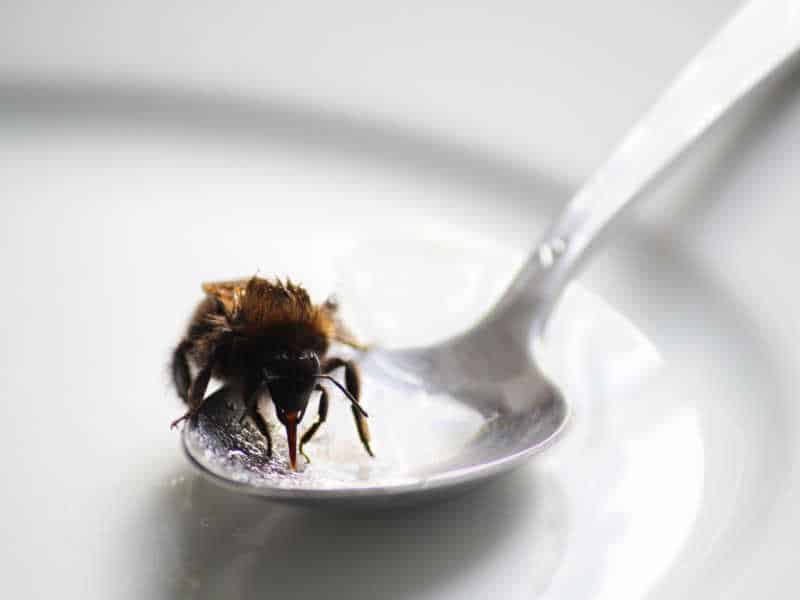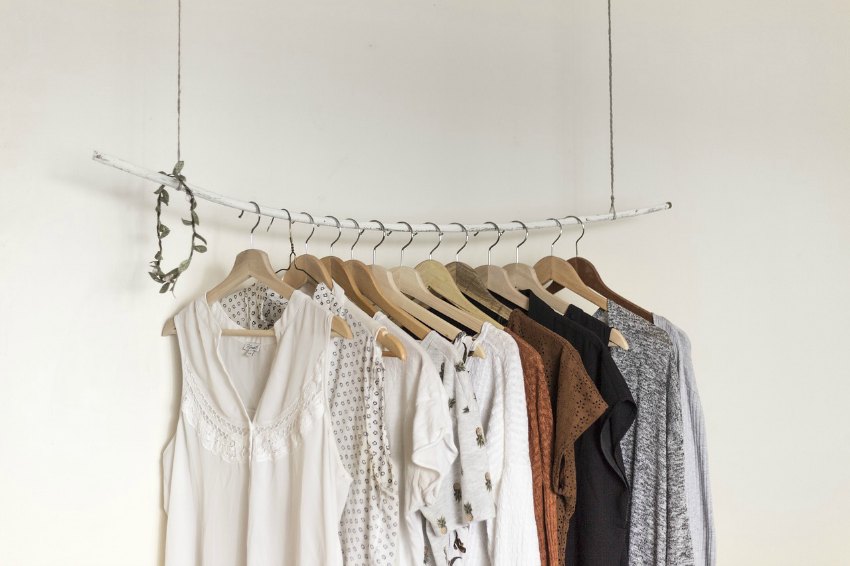Cleaning With White Vinegar – Everything You Need To Know
To support the running costs of Moral Fibres, this post contains affiliate links. This means Moral Fibres may earn a small commission, at no extra cost to readers, on items purchased through these links.
Got questions about vinegar? You’ve come to the right place – I’ve got all the answers for you! Here is everything you could ever need to know about cleaning with white vinegar.
White vinegar is a powerhouse of an ingredient when it comes to natural cleaning. It’s also the backbone of many of my green cleaning recipes.
However, since I published Fresh Clean Home I get a lot of questions about vinegar. Many people wonder just how eco-friendly vinegar is. Especially compared to other natural cleaning solutions, such as shop-bought products.
There also seems to be confusion about how to use vinegar effectively in the home. This has resulted in some of you being disappointed with the results of your homemade cleaning products.
What I want to do in this post is answer all of your queries on white vinegar. I also want to troubleshoot common problems. In fact, consider this post as a FAQ for all your white vinegar cleaning questions!
Let’s crack on with the questions!
- How Is White Vinegar Made?
- Is White Vinegar Eco-Friendly?
- What Can You Clean With White Vinegar?
- What Should You NOT Clean?
- What Should You Not Mix White Vinegar With?
- How Do I Make A Cleaning Solution With White Vinegar?
- Can You Use Other Types of Vinegar for Cleaning With?
- What If I Don’t Like The Smell of Vinegar?
How Is White Vinegar Made?
Vinegar is typically made through a two-step process of fermentation from carbohydrate to alcohol. The carbohydrate can be corn, rice, or sugar.
This alcohol produced is mixed with water. It then undergoes further fermentation, to produce acetic acid. This is also known as vinegar.
This means vinegar is comprised of water, acetic acid, and trace amounts of vitamins and minerals. There are no other hidden nasties.
Is White Vinegar Eco-Friendly?
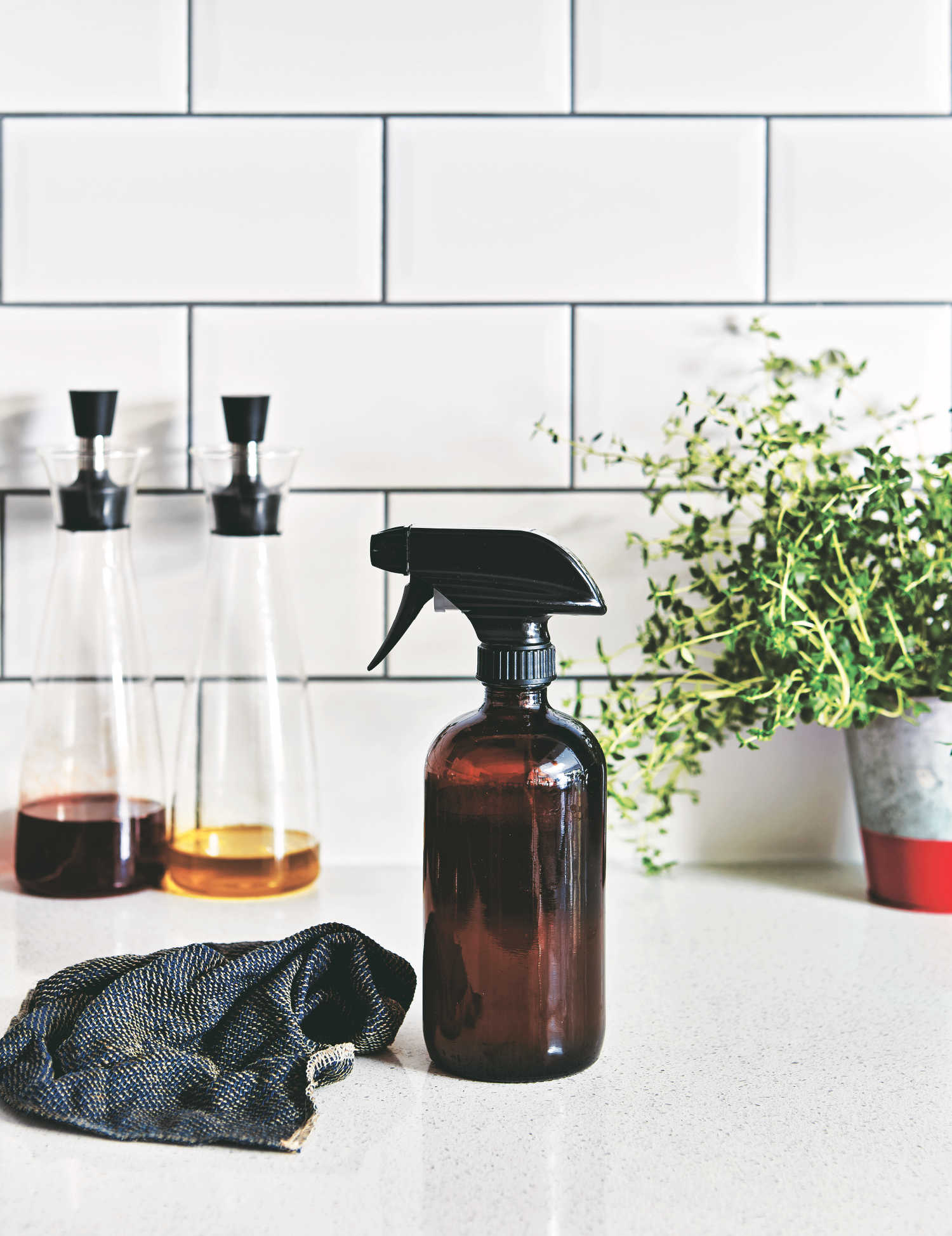
When you look at how white vinegar is made, and what it is made from, white vinegar itself is considered eco-friendly. Particularly when it comes to natural cleaning. It’s 100% all-natural, renewable, biodegradable, vegan, hypoallergenic, and non-toxic. All of the good stuff, really.
Is Vinegar Made From Petrochemicals?
I have heard reports of some white vinegar brands possibly being made with petrochemicals. However, I found nothing authoritative or conclusive on the subject.
I then read this informative article in The Washington Post. The article talks about some pretty dubious marketing from Heinz in the States. Here Heinz said that its vinegar contained no petrochemicals.
This claim seems to have given rise to this potential misinformation.
The conclusion I came to from this was that vinegar does not tend to be made with petrochemicals. Advertising activity like this would have been thrown out in the UK by the Advertising Standards Agency.
Heinz’s advertising activity would be like a toothpaste brand stating in their advertisements that they are microbead free, when in fact microbeads in toothpaste were banned several years ago.
Inferring that others do use petrochemicals, when actually they don’t, certainly sows a seed of doubt and misinformation. As such, I can see where this doubt has come from. However, I will keep an open mind. If I find out otherwise I will certainly update here in future.
What Is Vinegar’s Carbon Footprint?
Where I think that vinegar falls down as a truly green cleaning solution, is that like anything, white vinegar has a carbon footprint. White vinegar is mostly made of water, so there is a carbon cost of transporting a heavy product that has a high water content.
However, I think this is no different from buying conventional cleaning products, which are also mostly water-based.
Homemade cleaning products also contain fewer harsh chemicals compared to shop-bought alternatives. And if you buy white vinegar in bulk there is a huge reduction in plastic usage compared to buying shop-bought cleaners.
Meanwhile, using vinegar to make natural cleaning products can be much cheaper. This makes it a more accessible natural cleaning option for many. I will leave this one up to you to decide whether white vinegar as a cleaning solution matches your own environmental ethics.
Is Vinegar Safe For the Environment?
As vinegar is edible and easily biodegrades, vinegar is considered an eco-friendly natural cleaning ingredient. And unlike bleach-based cleaners, vinegar is also considered safe for use in septic tanks. This is because vinegar won’t harm the good bacteria in your septic tank.
What Can You Clean With White Vinegar?
You can clean so many things! The acidic nature of white vinegar means you can take on dirt, grease, and grime with ease. Whether that’s in your kitchen, bathroom, or general living areas of your home. You can even use it in your garden.
One of my favourite things is my homemade cleaning wipes solution. I use these wipes to keep on top of cleanliness in my bathroom in between big cleans.
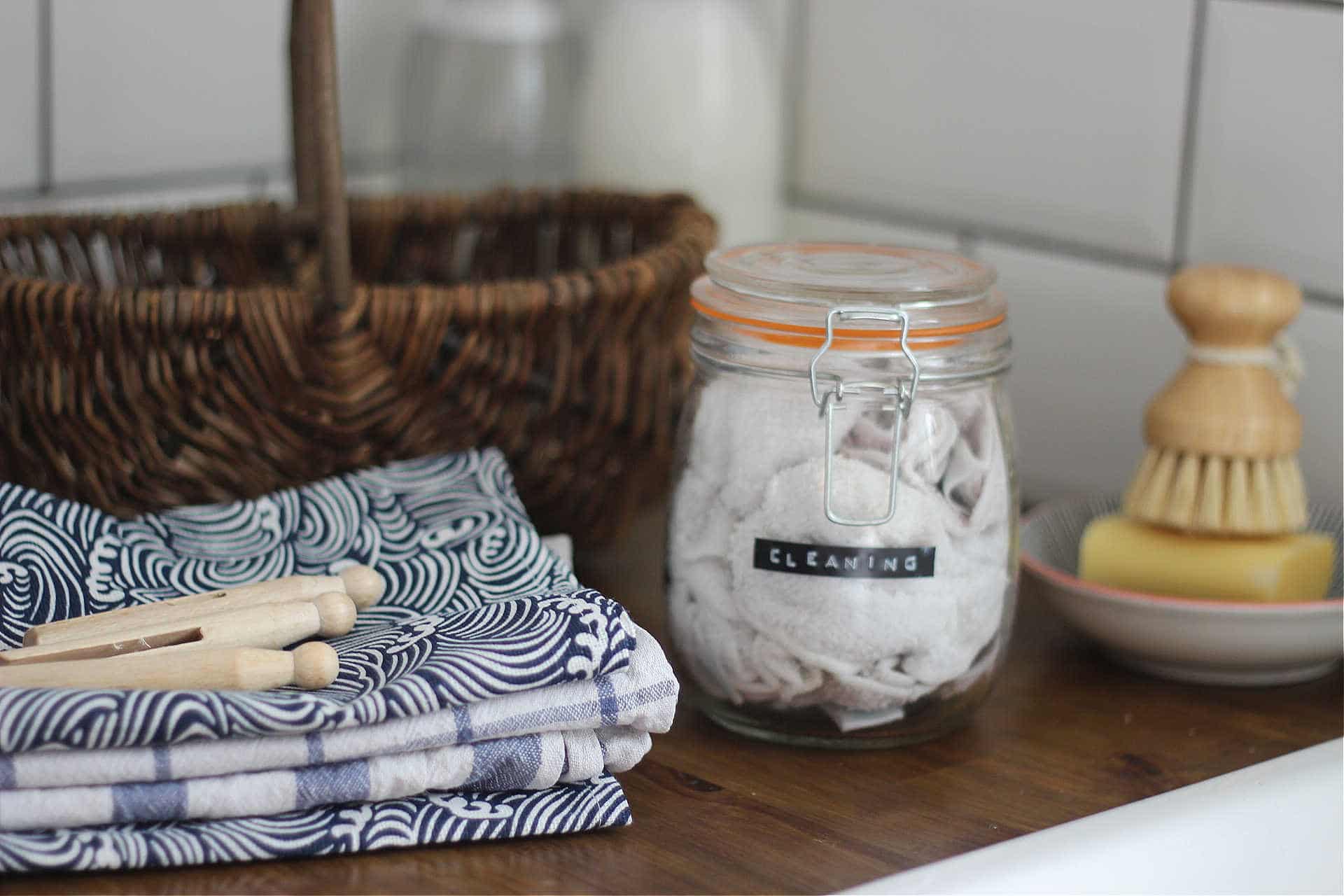
White vinegar also acts as a natural disinfectant. It can kill common germs like salmonella and E. coli.
However, white vinegar is chiefly used as a cleaning product, rather than as a disinfectant. This means that when you want to clean surfaces where raw meat has been prepared, white vinegar is best used in tandem with something antibacterial to guarantee all germs are killed. I like using these plastic-free refill anti-bacterial sachets (from Big Green Smile) for no-fuss zero-waste germ-killing.
If you would rather use an antibacterial cleaner on your hard surfaces, then it doesn’t rule out the use of vinegar around the home.
I use vinegar in my laundry to soften my clothes and clean my washing machine. It will even tackle laundry stains. Meanwhile, white vinegar is also amazing at tackling mineral deposits on glass – such as on shower screens. I even use vinegar to descale my iron.
I would rephrase the question. Instead, you should be asking, what can I not clean vinegar with. This leads us nicely to the next section…
Where Should You Not Clean With White Vinegar?
White vinegar is a great natural cleaner for many cleaning applications. However, it’s important to remember that vinegar is an acid. This means there are a few things you should not clean with vinegar.
White vinegar isn’t suitable for cleaning natural stone, granite, marble, quartz, or similar. This is because vinegar can be corrosive to these materials. It may also etch the surface.
Metallic paint is another no-no. So avoid using vinegar-based cleaners to clean your car.
Back in the 1980s, before strict pollution controls were in place, acid rain was a huge environmental problem. And at the time, one unlikely problem that acid rain threw up was damage to paintwork on cars. This was particularly a problem for dark-coloured cars and those with a metallic finish.
Thankfully, acid rain is one environmental problem we don’t have to worry so much about anymore. However, it’s a great lesson on keeping acids, like vinegar, away from your car.
What Should You Not Mix Vinegar With?
As powerful as vinegar is, it can be a little bit anti-social, shall we say. It simply doesn’t mix well with others. I’m sure we’ve all come across someone like that in life!
In some cases, mixing vinegar with other products can be damaging to your health. In other cases, mixing vinegar isn’t dangerous, but it will create an ineffective cleaning solution.
The chances are if you have made a homemade cleaning product before and mixed vinegar, for example, with bicarbonate of soda, then you will have been disappointed with the results.
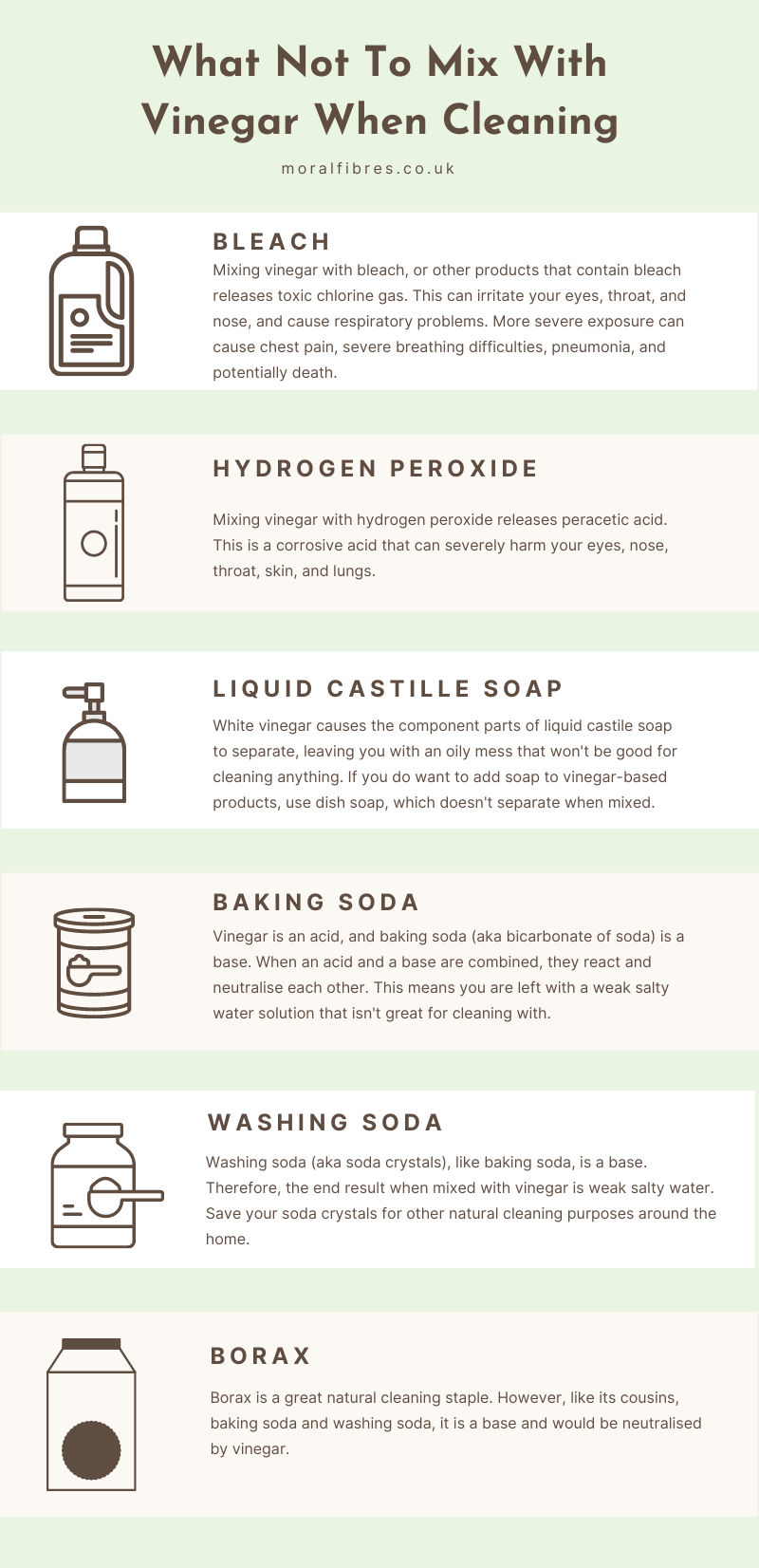
Here’s the full list of what you shouldn’t mix white vinegar with when you are cleaning or making cleaning products:
Bleach
Mixing vinegar with bleach, or other cleaning products that contain bleach releases toxic chlorine gas. This resultant gas can be harmful to your health. Chlorine gas exposure, even at low levels and for short periods of time, will irritate the eyes, throat, and nose. It can also cause coughing and breathing problems.
More severe exposure can cause chest pain, severe breathing difficulties, pneumonia, and fluid in the lungs. It can even potentially lead to death. In short, keep your bleach well away from vinegar or any homemade cleaning products that contain vinegar.
Hydrogen Peroxide
Hydrogen peroxide is a great more environmentally friendly disinfectant that I often use around my home. However, mixing vinegar with hydrogen peroxide releases peracetic acid. This is a corrosive acid that can severely harm your eyes, nose, throat, skin, and lungs. Avoid mixing the two together at all costs.
Liquid Castile Soap
Liquid castile soap is a great all-natural soap. I use it to make a whole host of natural cleaning products, like this DIY cleaning spray.
However, I keep this soap well out of cleaning products I make that contain vinegar. This is because white vinegar causes the component parts of liquid castile soap to separate. This leaves you with an oily mess that isn’t good for cleaning anything.
If you do want to add soap to vinegar-based products, use washing-up liquid. This doesn’t separate when mixed with vinegar.
Bicarbonate of Soda (Baking Soda)
Vinegar is an acid, and bicarbonate of soda (or baking soda, as it’s also known) is a base. If you can remember your secondary school science lessons, you might recall that when an acid and a base are combined, they react and neutralise each other.
This means when vinegar and bicarbonate of soda react you are left with a weak salty water solution. This really isn’t great for cleaning with. I’ve written more on why you should never mix baking soda with vinegar if you want a more in-depth read on this.
Some people say vinegar and bicarbonate of soda are good for clearing blocked drains. I personally say there’s a much better and more effective natural way to clear blocked drains.
Soda Crystals
Much the same as the bicarbonate of soda, soda crystals are a base. Therefore, the end result when mixed with white vinegar is weak salty water. Save your soda crystals for other natural cleaning purposes around the home.
Borax
Again, borax is a great natural cleaning staple. However, like its cousins, bicarbonate of soda and soda crystals, it is a base and would be neutralised by vinegar, so just don’t do it!
How Do I Make A Cleaning Solution With White Vinegar?
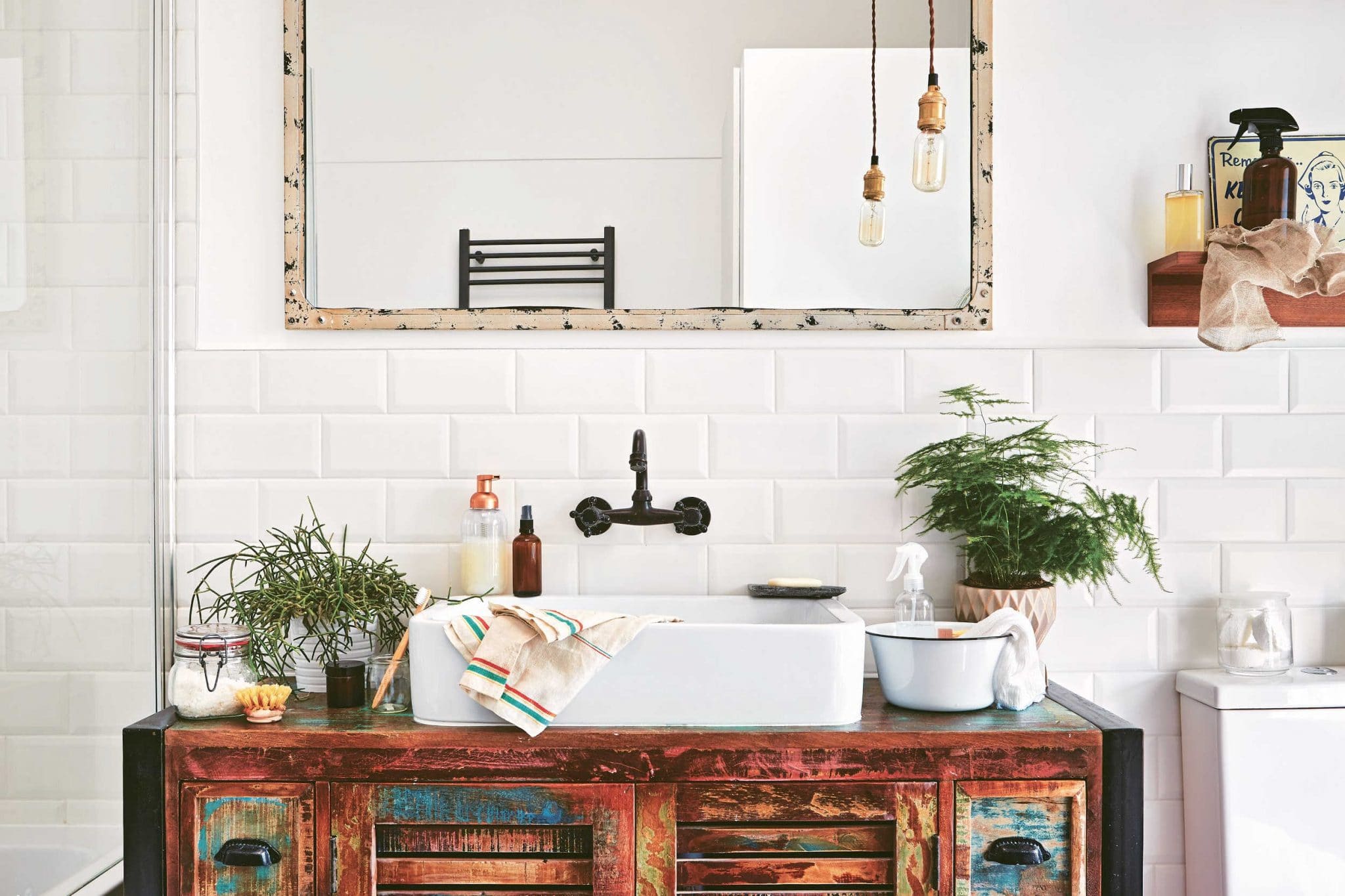
To make a homemade cleaning solution with vinegar, simply pour 250 ml of white vinegar into a jug, and mix it with 250 ml of cooled boiled water. It’s important to use cooled boiled water. This helps to kill any germs or bacteria that may shorten the shelf-life of your cleaning solution.
Next, decant the solution into a 500 ml spray bottle, and spray and wipe. For an added kick, you can also add a tablespoon of washing-up liquid, and/or 20 – 25 drops of essential oil. This will have a shelf life of up to 8 weeks.
Now you know the basic vinegar cleaning solution, I’ve got lots of other vinegar-based natural cleaning products that you can make. You can try:
- homemade cleaning wipes
- how to make homemade fabric conditioner
- removing stains from clothing naturally
- and using vinegar to clean your washing machine
Can You Use Other Types of Vinegar for Cleaning With?
I personally don’t recommend using other types of vinegar for cleaning with – only white vinegar. Malt vinegar, compared to white vinegar, for example, has a much stronger smell. What’s more, there is the potential that malt vinegar’s dark hue may cause staining on light-coloured surfaces.
Other dark-coloured types of vinegar may also have the potential to stain. Meanwhile, other types of vinegar, such as white wine vinegar or apple cider vinegar, aren’t cost-effective to use in larger quantities. I buy my white vinegar in bulk for cleaning, for as little as £7 for 20 litres. This makes it a really economical choice.
What If I Don’t Like The Smell of Vinegar?
Not everyone likes the smell of vinegar. The good news is that it’s rare to use neat white vinegar in cleaning solutions. It’s mostly used diluted – in a ratio of 50/50 white vinegar to water. This means you’re not getting a full blast of vinegar!
Even at that, not everyone is a fan. If you or someone in your household is sensitive to the smell of vinegar, then there are workarounds.
You can infuse fruit peelings and herbs in vinegar. This creates a fresher scent that’s easy on your pocket. You can even mix lemon juice and vinegar, to help mask the smell of vinegar.
Alternatively, you can scent your vinegar-based cleaning products with essential oils. I find that 20 to 25 drops of oil to 250 ml of cooled boiled water and 250 ml of white vinegar is the sweet spot between scent and cost-effectiveness. However, do feel free to add more or less depending on your nasal preferences.
I’ve been using white vinegar to clean since 2008. What I have found is that I now equate the smell of vinegar with cleanliness. Especially if you are used to cleaning with bleach, it will take time for your brain to adjust.
Give it some time. If it’s not working for you, then there’s no shame in trying something different. This citric acid cleaning spray, for example, is vinegar-free but still has many of the benefits of cleaning with vinegar.
Anything Else?
I hope this post helps you with all of your vinegar-based questions. If you have any more, leave them in the comments below. Alternatively, drop me a message and I will endeavour to answer them here.
Found this post useful? Share with your friends or pin it for later:
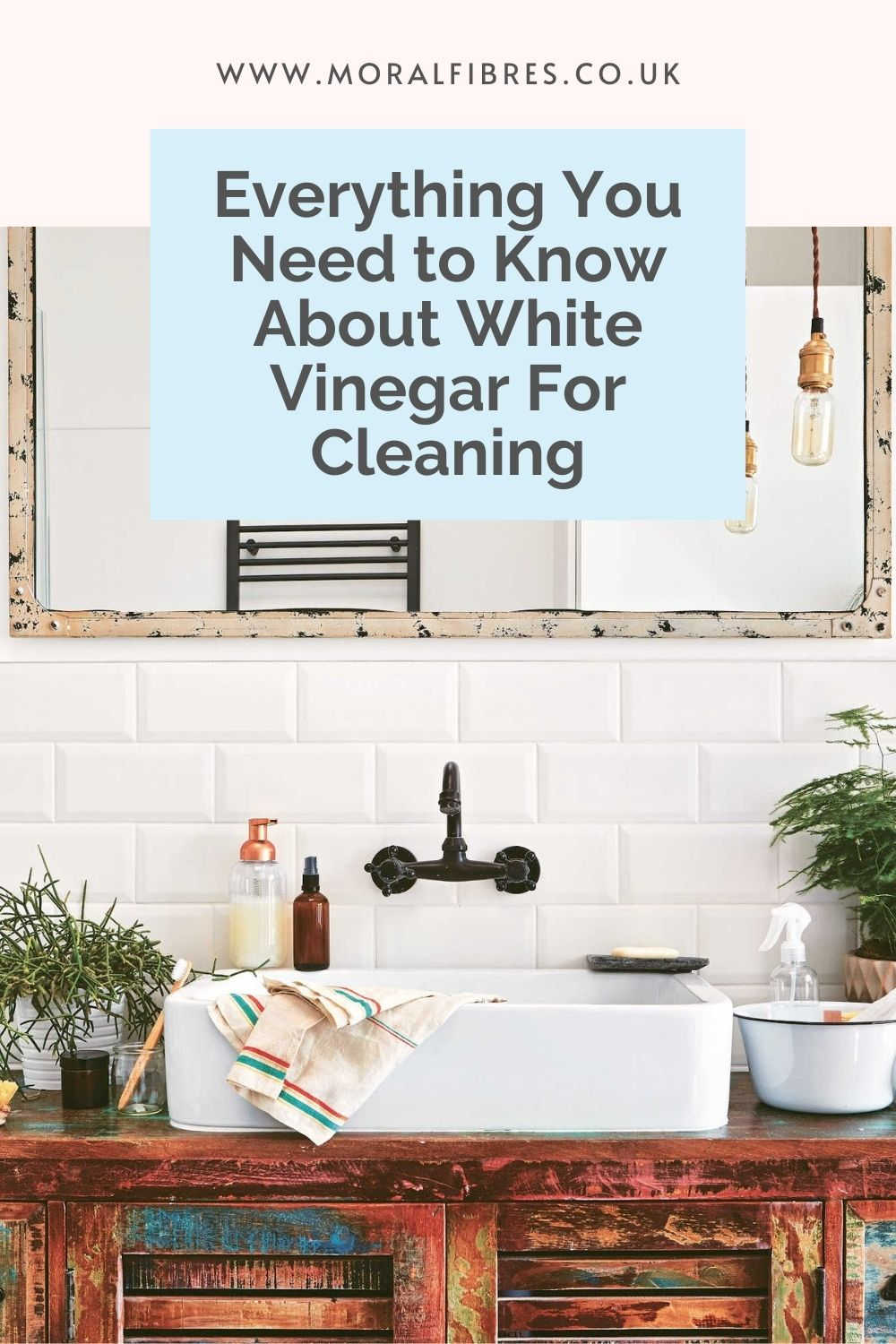
Found this post useful? Please consider buying me a virtual coffee to help support the site’s running costs.



